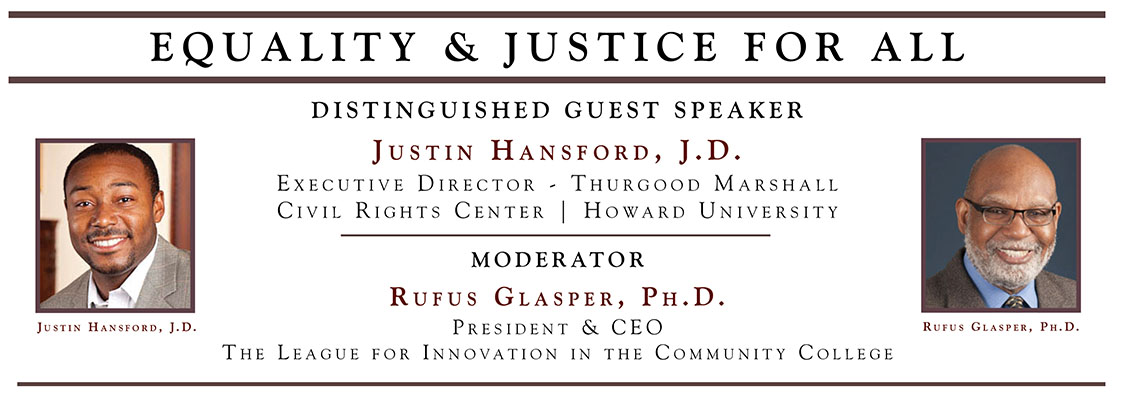Constitution Series: Equality And Justice For All
June Program
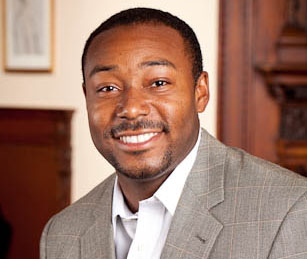
Distinguished Guest Speaker
Justin Hansford, J.D.
Executive Director, Thurgood Marshall Civil Rights Center | Howard University
Professor of Law | Howard University
B.A. Howard University | J.D., Georgetown Law School
Justin Hansford is a professor of law and the founder and executive director of the Thurgood Marshall Civil Rights Center at Howard University School of Law. Dating back to 1869, Howard University School of Law is the nation's most renowned historically Black law school. The Thurgood Marshall Civil Rights Center is Howard University's flagship institutional setting for the study and practice of civil rights, human rights, and racial justice advocacy.
Professor Hansford was previously a Democracy Project Fellow at Harvard University, a visiting professor of Law at Georgetown University Law Center, and an associate professor of Law at Saint Louis University. He has a B.A. from Howard University and a J.D. from Georgetown University Law Center, where he was a founder of the Georgetown Journal of Law and Modern Critical Race Perspectives. Hansford also has received a Fulbright Scholar award to study the legal career of Nelson Mandela, and served as a clerk for Judge Damon J. Keith on the United States Court of Appeals for the Sixth Circuit.
Hansford is a leading scholar and activist in the areas of critical race theory, human rights, and law and social movements. He is a co-author of the forthcoming Seventh Edition of “Race, Racism and American Law,” the celebrated legal textbook that was the first casebook published specifically for teaching race-related law courses. His interdisciplinary scholarship has appeared in academic journals at various universities, including Harvard, Georgetown, Fordham, and the University of California at Hastings.
In the wake of the killing of Michael Brown in Ferguson, Missouri, Hansford worked to empower the Ferguson community through community-based legal advocacy. He co-authored the Ferguson to Geneva human rights shadow report and accompanied the Ferguson protesters and Mike Brown’s family to Geneva, Switzerland, to testify at the United Nations. He has served as a policy advisor for proposed post-Ferguson reforms at the local, state, and federal level, testifying before the Ferguson Commission, the Missouri Advisory Committee to the United States Civil Rights Commission, the President’s Task Force on 21st Century Policing, and the Inter-American Commission on Human Rights.
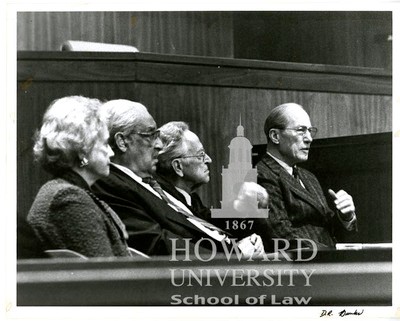
Supreme Court Justices Sandra Day O’Connor, Thurgood Marshall, Harry Blackmun and Byron White pictured at Howard University in 1991.
Justice O’Connor and Justice Marshall served together on the U.S. Supreme Court from 1981 to 1991.
JUSTICE THURGOOD MARSHALL
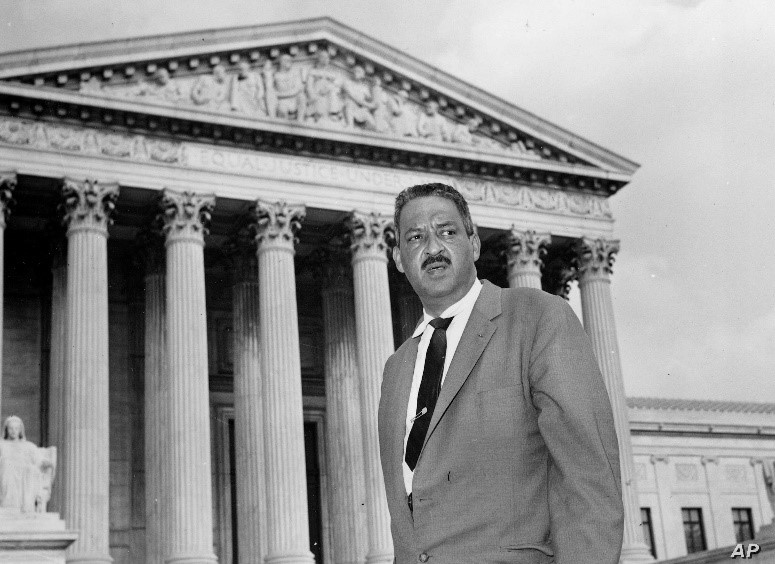
(July 2, 1908 – January 24, 1993) Thurgood Marshall was an American lawyer who served as Associate Justice of the Supreme Court of the United States from October 1967 until October 1991. Marshall was the U.S. Supreme Court's first African-American justice.
Thurgood Marshall wanted to study in his hometown law school, the University of Maryland School of Law but did not apply because of the school's segregation policy. Marshall earned a B.A. at Lincoln University in Oxford, Pennsylvania, a historically black university. He earned his law degree at Howard University School of Law after his mother pawned her wedding and engagement rings to pay the tuition. In 1933, Marshall graduated first in his law class at Howard. After graduating from law school, Marshall started a private law practice in Baltimore. He began his 25-year affiliation with the National Association for the Advancement of Colored People (NAACP).
In 1934 he represented the organization in the law school discrimination suit Murray v. Pearson and became Chief Counsel for the NAACP in 1936.
Prior to his judicial service, he successfully argued several cases before the Supreme Court, including his most famous case, Brown v. Board of Education in 1954. In total, Marshall won 29 out of the 32 cases he argued before the Supreme Court.
In 1961, President John F. Kennedy appointed Marshall to U.S. Court of Appeals for the Second Circuit. Four years later, President Lyndon B. Johnson appointed Marshall as the U.S. Solicitor General and in 1967, President Johnson successfully nominated Thurgood Marshall to the United States Supreme Court.
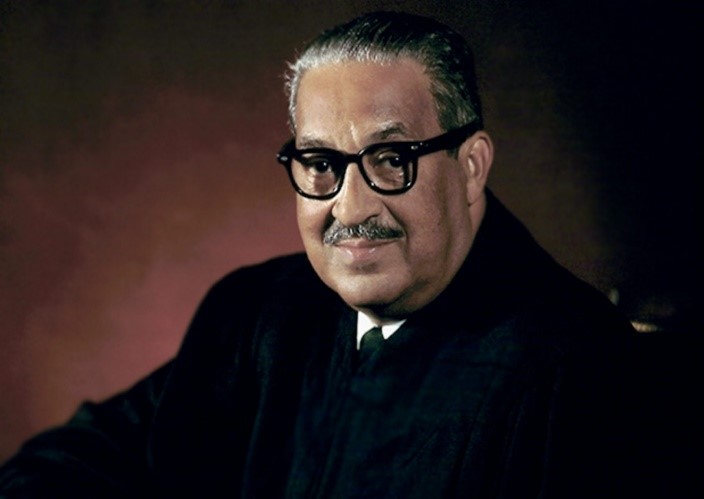
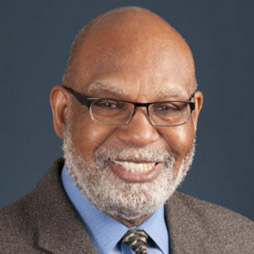
Rufus Glasper | Guest Moderator
Rufus Glasper, Ph.D., CPA (retired) is President and CEO of the League for Innovation in the Community College, an international nonprofit organization with a mission to cultivate innovation in the community college environment in a continuing effort to advance the community college field and make a positive difference for students and communities.
Dr. Glasper, Chancellor Emeritus of the Maricopa Community Colleges, served as Chancellor from 2003 through February 2016, and held district leadership positions for three decades. Nationally, Dr. Glasper serves as an advisory board member for the Center for Community College Student Engagement, The University of Texas at Austin; Community College Research Center, Teachers College, Columbia University; and The Belk Center for Community College Leadership and Research at North Carolina State University. Dr. Glasper serves on the board of directors for the Education Design Lab and COMAP, the Consortium for Mathematics and Its Applications and the Sandra Day O'Connor Institute. He also served as trustee for the Higher Learning Commission and the American Council on Education.
Dr. Glasper earned a bachelor’s degree in business administration from Luther College, as well as a master’s and advanced degrees in school business administration from Northern Illinois University. He received his doctorate of philosophy degree in higher education finance from the University of Arizona.
